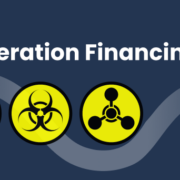Fraud Awareness
Course Description
It may surprise you to learn that fraud in Australia is higher than the international average, arising in more than half of organisations. This costs the economy billions of dollars and organisations an average of $3 million. In addition, fraud can cause a loss of reputation and eventual loss of business profitability.
The most powerful anti-fraud weapon are educated and aware employees. The Salt Fraud course educates employees as to the types of behaviour that constitutes fraud, and provides a comprehensive list of fraud indicators to foster internal monitoring.
Building a culture of awareness and responsibility can reduce the risk of fraud and increase detection rates, thereby reducing the monetary and other costs of fraud.
Who is this training for?
The Salt Fraud course is tailored such that it is relevant to a diverse range of employees. This is because any person within an organisation is capable of committing fraud. This course is hence a valuable and appropriate tool for staff at all levels within an organisation, ranging from front-line staff to management.
Course Outline
- Module 1: What is fraud?
- Module 2: Fraud risks
- Module 3: Common fraud schemes
- Module 4: Fraud red flags
- Module 5 :Risk management







